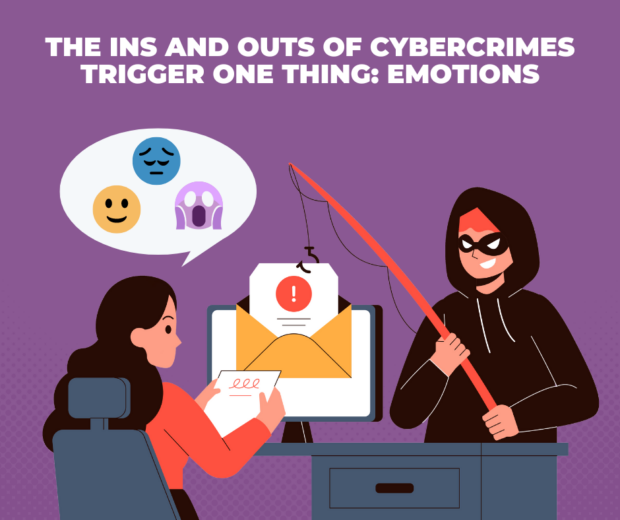Watch your emotions to avoid getting scammed

Illustration from BPI
The ins and outs of cybercrimes trigger one thing: Emotions. This is because scammers are experts in luring people into their traps.
As the movie “Inside Out 2” has become a hit among audiences of almost all ages, we can learn a thing or two about
keeping our emotions in check to avoid falling prey to cyber fraud.
“Social engineering has long been a favored tool by scammers in luring victims to fraud. This is especially true in cybersecurity – almost all attacks begin with social engineering,” said Jonathan John Paz, BPI enterprise information security and data protection officer.
“Scammers, hackers especially, know very well how emotions can be manipulated to their advantage, to successfully get targets to do their bidding such as disclosing confidential information”, Paz added.
With the use of various digital platforms, which often enable them to be anonymous or use fake identities, it becomes easier for cybercriminals to pull off their schemes while triggering these emotions from their potential victims:
• Fear
A specific type of emotional manipulation is trying to convince you that you must act fast otherwise you will lose something important. The urgency factor plays a big role in social engineering as there’s a high chance that the
victim would then no longer resort to rational thinking due to haste. We’ve heard countless stories of how social engineers pretend to be calling from your bank and say that you must give them some information to not lose access to your
bank account.
• Joy
One of the most overused warnings of all time is: “If it’s too good to be true, it probably is.” However, too many of us can’t resist being persuaded by unbelievable offers or promos. These include low-risk investments with alleged high returns, waived annual fees for credit card users, and earning additional rewards and points in exchange for some “bank details” and others.
• Sadness
Loneliness and isolation are two pervasive feelings when it comes to romance scams. It is important to remember that in this day and age, anyone can create fake identities easily and put them in dating apps or websites. Scammers can be very convincing to get potential victims looking for love or feeling lonely to give them their trust, personal details, and ultimately their money, even when they haven’t met each other in person.
“The movie ‘Inside Out’ once again highlights the importance of acknowledging our emotions as humans. For cybercriminals, playing with our feelings of fear, joy, or sadness allows them to get victims to reveal personal and sensitive information. They are very adept at finding our weak spots,” said Paz.
BPI is reminding the public that the Bank will never ask for confidential info via email, text messages, or phone calls, and will never ask its clients to share their password or one-time PIN.
“We should always watch out for those tactics. As we always say, cybersecurity is a shared responsibility. All of us have a role to play in ensuring the safety of our bank accounts,” Paz added. —Contributed